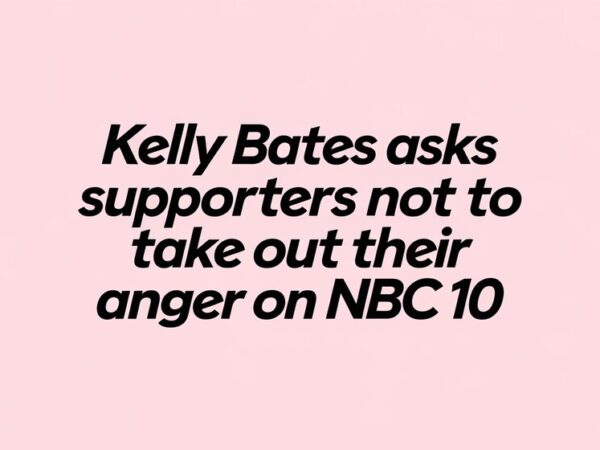Keffals Manifesto: Origins, Claims, Reactions, and 2025 Updates

Introduction
The phrase “keffals manifesto” has become a widely searched term across the internet, drawing interest from both supporters and critics of online activism. This document—or more accurately, a collection of claims, timelines, and allegations—has been central to online debates since its first appearance. To understand what the keffals manifesto represents, one must first examine its background, the creator involved, its core claims, and the controversies that continue to shape the conversation in 2025.
This article provides a comprehensive breakdown of the keffals manifesto, covering its origins, public reactions, criticisms, and the latest updates.
What Is the Keffals Manifesto?
The keffals manifesto refers to a set of claims and narratives directed at Clara Sorrenti, known online as Keffals, a Canadian Twitch streamer and activist. It is not a single unified publication but rather a combination of online documents, videos, and posts that attempt to frame her actions in a specific light. The “manifesto” label reflects the way critics compiled and structured their arguments, presenting them as a long-form exposé.
What makes the keffals manifesto notable is not only its content but also its role as a flashpoint in broader discussions about online harassment, digital accountability, and the challenges of verifying internet controversies.
Who Is Keffals?
Clara “Keffals” Sorrenti rose to prominence as a transgender activist and streamer, frequently addressing issues such as trans rights, online safety, and political discourse on Twitch and Twitter. By 2022, Keffals had become widely recognized after she publicly opposed the harassment platform Kiwi Farms, leading a campaign that contributed to its temporary takedown.
Her outspoken role brought admiration from many within the LGBTQ+ community but also criticism and backlash from opponents. This polarization set the stage for the creation of the keffals manifesto, which aimed to document perceived contradictions and controversies surrounding her.
Author and Intent of the Manifesto
The keffals manifesto did not originate from Keffals herself but from critics and detractors. The stated intent was to expose alleged inconsistencies, past behaviors, and motivations. Supporters of the manifesto argue that it serves as an accountability record, while critics see it as a targeted harassment tool designed to discredit an activist.
The framing of the manifesto as a “truth document” reflects a growing internet trend: compiling digital receipts—screenshots, videos, and archived posts—into a structured narrative that seeks to persuade audiences.
Core Claims and Themes
The keffals manifesto centers on several recurring themes:
- Allegations of dishonesty – Critics argue Keffals misrepresented certain events or exaggerated claims for attention.
- Platform controversies – The manifesto highlights her disputes with Twitch, Twitter, and YouTube moderation.
- Community management – Questions are raised about her interactions with fans, detractors, and other creators.
- Activism vs. opportunism – Detractors frame her activism as self-serving, while supporters defend it as necessary visibility work.
It is important to note that while the manifesto compiles claims, not all points are substantiated, and some remain heavily contested.
Timeline: From Pre-Publication to 2025
- Pre-2022: Keffals gains traction as a political streamer and trans activist.
- 2022: Following harassment incidents and a swatting attack, Keffals campaigns against Kiwi Farms. Media coverage grows rapidly.
- Late 2022–2023: The keffals manifesto emerges online, consolidating various criticisms into long documents and video breakdowns.
- 2023–2024: The manifesto spreads on forums, Reddit threads, and YouTube commentary channels. Debates intensify, with counter-documents emerging.
- 2025: The term “keffals manifesto” continues to trend as new updates, reactions, and counterarguments surface. Its legacy remains contested, highlighting the endurance of internet culture battles.
Reception and Impact
The release of the keffals manifesto triggered divided reactions:
- Supporters of Keffals dismissed the document as a harassment campaign, pointing out selective evidence and misinterpretation.
- Critics and detractors saw it as validation of their suspicions and used it to fuel ongoing commentary.
- Media outlets covered the controversy in varying tones, with some framing it as part of a broader narrative about online accountability and digital harassment.
The manifesto’s existence significantly influenced Keffals’ digital footprint, cementing her as both a polarizing and symbolic figure in internet activism.
Counterarguments and Critiques
One of the main critiques of the keffals manifesto is its reliance on screenshots and out-of-context posts. Many supporters argue that the document cherry-picks evidence, omitting explanations or counterpoints. Additionally, fact-checkers and independent analysts have noted that some claims either lack verifiable proof or rely on subjective interpretations.
Another layer of critique centers on the ethics of compiling manifestos in general. While meant to hold individuals accountable, these documents can easily blur the line between journalism and harassment, amplifying targeted abuse rather than fostering transparency.
Related Controversies
The keffals manifesto is deeply connected to larger debates, including:
- Kiwi Farms takedown and online harassment: Keffals’ activism against doxxing forums shaped the context in which the manifesto spread.
- Platform moderation: Her conflicts with Twitch and Twitter highlight how platforms handle high-profile harassment cases.
- Creator accountability: The manifesto adds to ongoing debates about whether creators should face public scrutiny through documents compiled by critics.
Evidence and Sources
The keffals manifesto frequently references:
- Screenshots of social media posts and private chats.
- Archived Twitch clips and YouTube videos.
- Commentary videos summarizing events.
However, evaluating these sources requires skepticism. The ease of editing screenshots and the lack of neutral third-party verification complicates the credibility of the document. Responsible readers must separate verifiable facts from speculation.
Legal and Ethical Considerations
From a legal standpoint, the keffals manifesto intersects with defamation, privacy rights, and online harassment. Publishing accusations without concrete proof risks reputational harm. Ethically, the act of compiling manifestos raises concerns about targeted harassment campaigns, especially when involving marginalized individuals already facing online threats.
Digital safety experts emphasize the importance of distinguishing between legitimate accountability efforts and harassment disguised as critique.
Updates and Revisions (2024–2025)
The keffals manifesto continues to evolve. Some versions of the document have been updated with new claims or corrections, while counter-manifestos have been published to rebut its points. In 2025, the discussion remains active across commentary channels, with new creators revisiting the subject for their audiences.
This ongoing evolution makes it essential to track not just the manifesto itself but also the broader discourse it inspires.
FAQs
Is the keffals manifesto unbiased?
No. It was written by critics, and while it compiles information, it reflects a perspective rather than a neutral record.
Where can I find the keffals manifesto?
It circulates online through forums, commentary videos, and archives, though versions differ.
Why is the keffals manifesto still relevant in 2025?
Because it represents a case study in internet culture wars, online accountability, and activism.
How reliable is the evidence?
Some sources are verifiable, but others lack independent confirmation. Readers should approach with caution.
Key Takeaways
- The keffals manifesto is a controversial, critic-authored compilation targeting activist and streamer Keffals.
- It reflects broader debates about online accountability, harassment, and the ethics of digital receipts.
- Its credibility is disputed, with critics highlighting inconsistencies and supporters pointing out selective framing.
- In 2025, it remains a touchstone in internet culture debates, symbolizing how online controversies evolve and persist.
Glossary
- Doxxing: Publicly exposing private information online.
- Swatting: Making a false police report to send armed responders to someone’s address.
- Manifesto (internet context): A long-form document compiling claims or critiques, often about public figures.
Conclusion
The keffals manifesto stands as both a product of and a contributor to the volatile environment of online discourse. While its supporters see it as exposing contradictions, its critics view it as harassment wrapped in documentation. In 2025, the debate is far from settled, but what remains clear is that the keffals manifesto serves as a case study in the complexities of truth, narrative, and accountability in the digital age.
Do Read: Kelly Bates Asks Supporters Not to Take Out Their Anger on NBC 10







